By Suzy Taylor Oakley, @oakleysuzyt
When my family moved from California to Arkansas in 1972, my best friend and I kept the U.S. Postal Service in business.
Our medium was paper and pen, and our delivery method was the mailman. (Fun fact: A first-class stamp cost 8 cents in 1972.)
Fifty years ago, no one had heard of the “internet,” and Mark Zuckerberg hadn’t even been born, much less given birth to the giant social media company he’s famous for.
There were no “apps,” blogs, instant messaging, FaceTime, or Zoom.
We had to write in longhand.
On paper.
Uphill both ways. In the snow.
I still have all of Kim’s letters — stashed in a box somewhere — as well as the one that accompanied one of her prized possessions, a Partridge Family record (remember 45s?) that she pressed into my hand as we cried and hugged each other that final July morning at her house. “Sorry the record is warpeted,” she lamented in the note.
I can still see us all those Friday nights in her bedroom, dramatically performing the hand motions we had choreographed as we prepubescent California girls sang our hearts out to “I Think I Love You” for the seven-hundredth time. (Keith Partridge was no doubt in love with both of us but had been afraid to choose, for fear of breaking up our friendship.)
Our poor parents. Fast forward a decade, and I was still writing and receiving letters penned in longhand. My friend Martha lived only fifteen miles up the road in rural Arkansas, but we had developed a bond when we met as teenagers at church camp. (Our moms had been friends since first grade, 1944, but their parents had known each other for decades before. Our family ties were strong.)
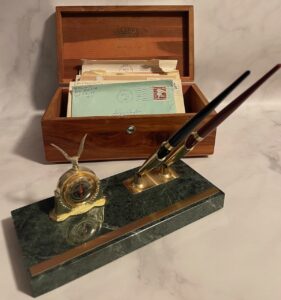

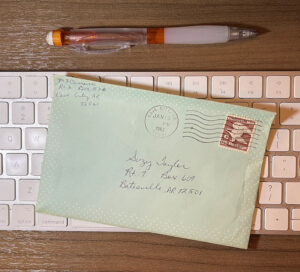
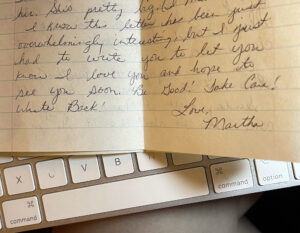
I miss getting letters from Martha, but mostly I miss her.
Even more than that (because I know Martha is just fine hanging out with Jesus), I’m sad that we, as a culture, have lost the beautiful art of taking pen to paper and pouring out our hearts, whether to our loved ones or our journals.
So, what has sent me down this nostalgic path today?
I’m reading Eric Metaxas’ brilliant biography of Dietrich Bonhoeffer, the German pastor best known for being martyred for his part in a conspiracy to eliminate Adolf Hitler.
Where did most of Metaxas’ copious information for the 640-page Bonhoeffer come from?
No doubt a lot of the author’s research was from news reports and history books, but a good many of the words in this 1.8-pound tome were written by the subject, himself.
From Bonhoeffer’s letters to and from friends and colleagues, and from his diary.
Bonhoeffer’s letters and diary entries connect me to him, just as my letters to and from Kim, Martha, and my other friends connected us in ways that have stood the test of time.
I can’t quite put into words why this biography has touched me so deeply, but it has something to do with the personal glimpses into Bonhoeffer’s thoughts and relationships. He was a deep thinker and frequently put his thoughts to paper.
I had wanted to read Bonhoeffer for several years, and I was prompted to do it when Metaxas released his excellent book Letter to the American Church in September. The 2022 book (which I’m listening to on Audible) draws heavily from the 2010 biography of Bonhoeffer and, no doubt, Metaxas’ 2017 biography of Martin Luther. He talks about both German church leaders in the two books mentioned above.
Martin Luther: The Man Who Rediscovered God and Changed the World is next on my list.
I bet it contains a few letters.
Suzy Taylor Oakley is a writer, editor and web developer who helps fellow authors build and grow an audience while sharing the good news of Jesus through their writing. Your gift for joining the wait list for Suzy’s WordPress course is her Author Website Checklist. Please excuse Suzy as she scrounges through her stash to find the perfect pen and paper to write Kim a fiftieth-anniversary thank-you letter for the Partridge Family record. (P.S. David Cassidy never called.)
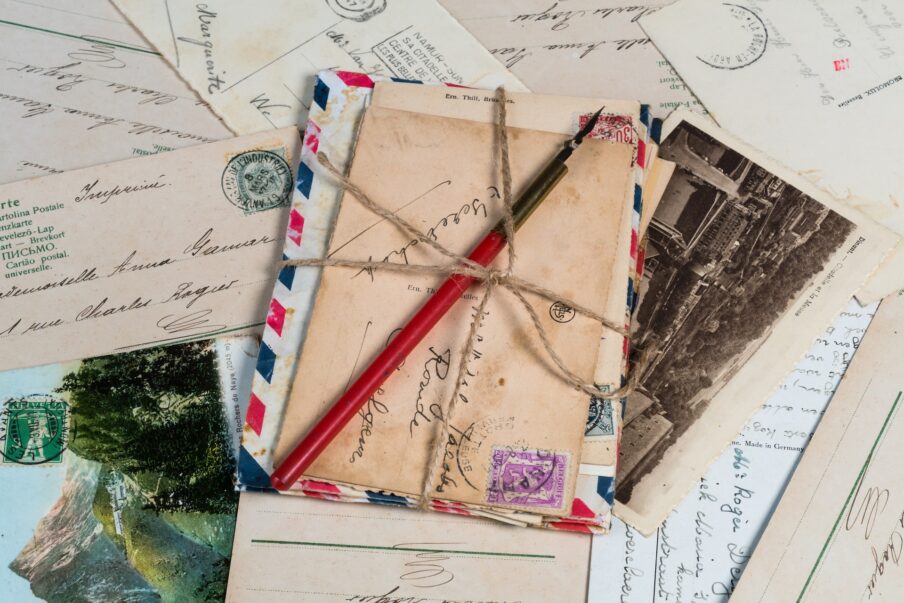
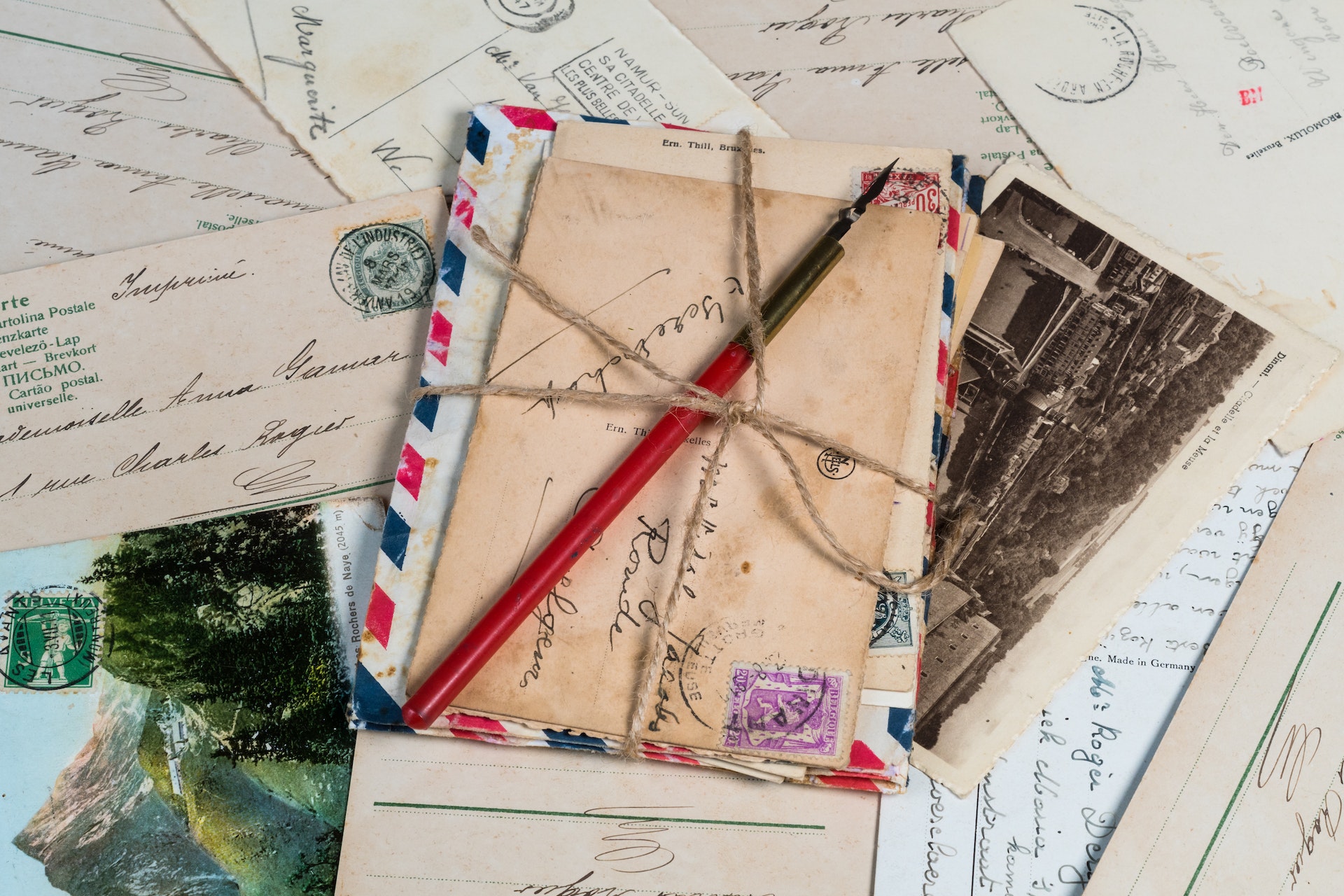


Comments 2
What a wonderful post! Having grown up during the same time period, I well remember letter-writing, 45s, and the price of postage stamps. As I read, Suzy, I thought that your story might lend itself to a dual-time novel. Just sayin’.
Lovely and so relatable. (David Cassidy was in love with ME, too! I just know it.) I’m teaching a Creative Writing course at a community college and we were just talking about letter writing on Wednesday evening. What a treat to see this in my inbox the next morning. Thanks for sharing!